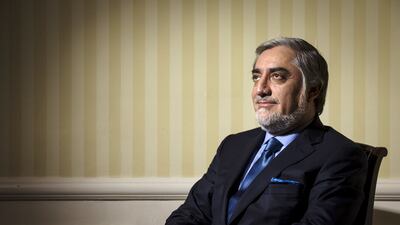The political positions adopted by South Asian leaders are often confusing. More often than not, their rhetoric is designed to sway the public mood away from reasoned consideration of key issues to deflect criticism.
The overwhelming tendency is to encourage the adoption of viewpoints based on emotion, usually driven by pseudo-nationalistic politics. Such rhetoric seeks to mine the reserves of hatred that seem to lurk under the surface of most societies. It is an efficient means of gathering enough populist support to attain and consolidate power, and can be useful in galvanising a nation.
That rhetoric pays off for individual leaders but the price paid by their countries invariably outweighs any gains made, with disastrous consequences, as events in Afghanistan, India and Pakistan have recently shown.
In Afghanistan, the government is hanging on by the thread proffered by the United States and its Nato allies. Despite the creation of a large military that is paid for by foreign powers, the government has simply been unable to prevent Taliban insurgents from dictating the terms of the conflict.
A major factor is the safe havens the Taliban enjoys in Pakistan. Another is the refusal of the ethnic factions within the Afghan government to work with each other. The rivalry between president Ashraf Ghani and chief executive Abdullah Abdullah has once again superseded the desperate need for unity at a time of national crisis, when the strategic southern province of Helmand has all but fallen to the Taliban.
The weak rhetorical response from Kabul has been to seek to blur the distinction between the Taliban and the ISIL chapter increasingly active in eastern Afghanistan, and then to imply that Pakistan is backing ISIL as much as it backs the Taliban.
It ignores the heavy fighting between the Taliban and ISIL since late last year and the Afghan military’s decision not to engage ISIL forces in Nangarhar province until very recently.
A similar exercise has been ongoing in Pakistan since the 2014 launch of a counterterrorism campaign involving about 250,000 troops. Despite the deaths of tens of thousands of people since the Pakistani Taliban insurgency erupted in 2007, successive elected governments and the domineering military have been undermining each other’s authority.
In the aftermath of the terrorist attack that killed a large number of lawyers in Quetta this month, government-allied Pashtun nationalist politician Mahmood Achakzai called for the dismissal of the military intelligence officials who failed to prevent it. The military publicly retorted by blaming civilian institutions for not implementing the national action plan agreed on in the aftermath of the massacre of about 150 people at an army school in Peshawar in December 2014.
Meanwhile, the government and military alike have ignored the claims of responsibility for the Quetta attack issued both by a Pakistani Taliban faction and ISIL, usually a sign that they worked together. Instead, they have blamed Afghanistan and India for sponsoring the perpetrators, ignoring the fact that most of the veteran jihadists leading the war against the Afghan government spent much of their careers fighting Indian forces in the disputed Himalayan state of Kashmir.
The Indian government’s rhetoric has been identical. The eruption of violent public protests in Kashmir has been blamed squarely on militants infiltrating from Pakistan, although their activities have not surfaced in any of the Indian media reports on the unrest. The Indian government response has been to voice support for separatists in Pakistan’s western Balochistan province and to claim that Pakistan is committing atrocities against the population of Gilgit-Baltistan, a part of Kashmir it administers.
The political emphasis of all three governments is to demonise the enemy without addressing the underlying causes of the violence.
In the case of Afghanistan, the leaders of various ethnic factions seem to be positioning themselves for a renewal of the civil war that raged there between the exit of Soviet occupation forces in 1989 and the arrival of Nato in 2001.
Similarly, the actions of competing power centres in Pakistan have deepened political divisions along ethnic, provincial, social and sectarian lines. The bickering between the government and the military is actively undermining the progress towards securing the country by creating space for surviving jihadists to reorganise and wage a new hit-and-run phase of the insurgency.
Meanwhile, the Hindu nationalist government in India is preoccupied with characterising its minorities as second-class citizens, a campaign justified as revenge for atrocities committed by non-Hindu invaders going back a thousand years, as reflected by the growing incidence of mob violence.
The politics of all three countries may be different, but their governments are united in their perpetuation of disingenuous narratives to shirk responsibility. They instinctively resort to shifting the blame for their actions and wrapping it in the colours of patriotism.
That phenomenon is hardly unique to South Asia, as the US presidential and Brexit campaigns have highlighted. The difference is that Donald Trump-like figures are the norm in the politics of Afghanistan, Pakistan and India, rather than the exception.
Tom Hussain is a journalist and political analyst in Islamabad

